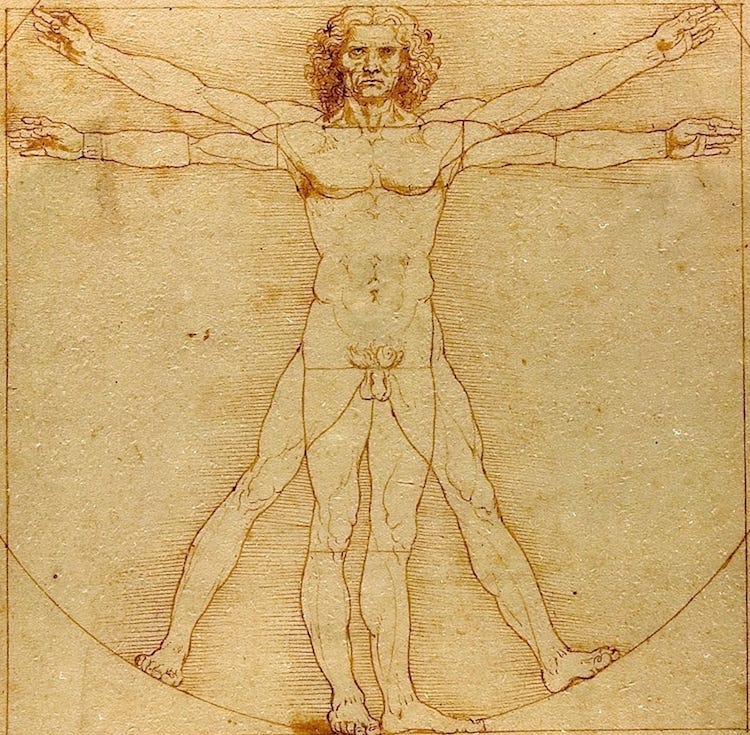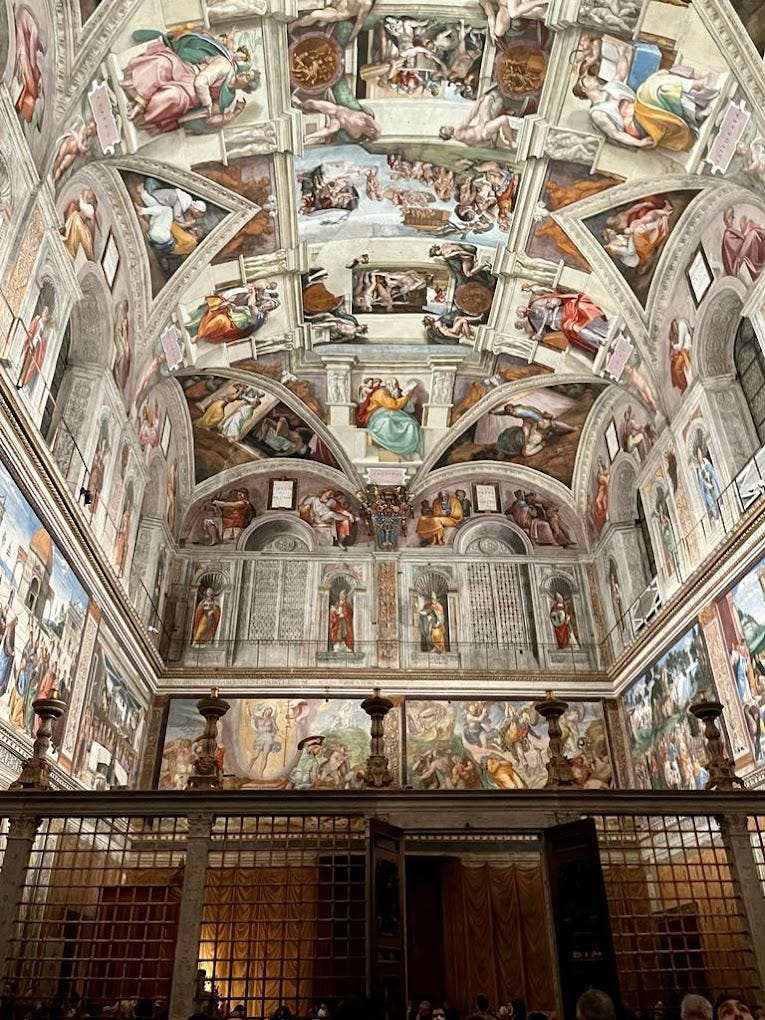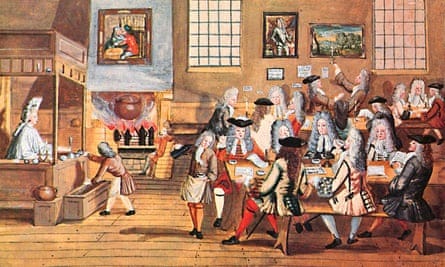Many say the “Psychedelic Renaissance” is upon us. At one point, media referred to Psychedelic Science 2023 as “the definitive event of the psychedelic renaissance.”
Of course, those who lived during the actual Renaissance did not call it that. Regardless, is the comparison apt?
The original Renaissance marked a period between the late 14th century to 17th century that followed the Black Plague and the so-called Dark Ages. Some say the Renaissance marked the first step toward modernity.
The capital of the Renaissance was Florence, which, back then, had a population of around 60,000—big by European standards at the time, but a fraction of today’s innovation hubs, such as, say, Silicon Valley.
The Medici family ruled Renaissance Florence. The emergence of a capitalist market economy allowed the Medicis to rise from humble merchant origins and accrue wealth quickly. Around 1400, they formed the Bank of Medici, which according to Wikipedia, was the “the largest and most respected bank in Europe during its prime.” The Bank failed a century later due to fraud and mismanagement.
Florence was a plutocracy. The Medicis obtained power using wealth and connections they had accrued from the Bank of Medici. Many scholars say the Medicis manipulated the elections of government officials to control positions.
The patronage system also contributed to the Medici’s maintenance of power. By sponsoring artists/humanists, the Medicis produced paintings, sculptures, and architecture. They made Florence in their image. They influenced education. They created the Platonic Academy of Florence that shaped the literary/artistic culture in the later Renaissance. They even loaned money to Florence itself. They projected an image as moral leaders. In short, patronage helped the Medicis gain political influence and achieve political goals. And in so doing, it shaped the trajectory of Florence.
Notably, the leading Medici, Cosimo de Medici, did not seek fame. Although he practically ruled the city from his ascent, he stayed out of the public eye. He did not hold political office. Neither did his successor. They worked behind the scenes.
Patronage also resulted in progress in the sciences, particularly astronomy. Did patronage affect the science? Hard to say. Westfall, in “Science and Patronage,” says Galileo used the telescope to please his patrons with planetary discoveries.
Did the Renaissance, largely a cultural movement of the upper class, result in improvement for the masses? For the lower 90%, probably not.
While the wealthy underwent a humanist transformation—shifting to a worldview centered on the importance of the human—ordinary folks continued to struggle with ordinary problems. Despite the advancement of humanist ideas among the elites, war, violence, hunger, and disease continued. Some historians say it got worse for the lower classes. Slavery remained, maybe flourished. And, sumptuary laws guarded against ostentatious dress, which restricted the wearing of luxury items and lavish clothing and allowed one to distinguish oneself based on their class.
So, the Renaissance wasn’t perfect. But it did give us the Mona Lisa and countless other marvelous works of art. I’m told the Sistine Chapel is magnificent. On balance, whatever criticisms or issues one has with the era, we’re probably better off with the Renaissance than without it. There was innovation, and it was positive.
The Renaissance then gave way to the Enlightenment. Renaissance-era scientific discoveries became the stepping stone for the multitude of revolutionary scientific discoveries of the next era that would change the world. The seminal ideas of Isaac Newton, for example, follow in the wake of the Copernican Revolution. Newton, Leibniz, and others would transform math, physics, and biology in institutions for us all. Philosophy, politics, and economics also took giant strides forward, sowing the seeds for modern political and governmental philosophies. It is hard to see the Enlightenment and Scientific Revolution unfolding without the Renaissance preceding them.
The Enlightenment also seeded the ideals of liberty and equality captured in our great political documents like the Declaration of Independence and U.S. Constitution. Enlightenment thinkers believed reason could better society. At bottom, they were more progressive than their Renaissance-era peers.
Notably, the Enlightenment saw the growth of caffeine and the coffee shop, a relatively unregulated space where everyone could discuss matters of common interest, personal views, or new creations. For a penny, customers of a variety of classes could access coffee, read newspapers, and have conversations with good company from the local community. Famous authors, journalists, and politicians often showed up at the local coffee shop. Voltaire, for example, famously drank at Café Procope with other patrons.
No doubt the Enlightenment values of liberty, equality, access, and so on didn’t manifest from above and trickle-down; rather, they emanated from a larger zeitgeist and reflected in the mundane details of how folks shared important ideas and interacted with each other.
So, are we in the middle of a Psychedelic Renaissance, eh? I don’t really know. Some of it fits, some of it doesn’t. Certainly, I see some deep parallels—both good and bad.
And yet right now, at this moment, one Enlightenment concept sits with me hard: chocolate can be had without spreading syphilis. Syphilis is not cause for celebration. It is not a “thing unavoidable” that must be experienced to get to a greater good. It is a disease.
But, being here now, let’s acknowledge one aspect of this week that is unquestionably good: PS2023 has sold 11,500 tickets.
Whatever one thinks about the trajectory of the Psychedelic Renaissance on June 20, 2023, this many attendees is a significant accomplishment and testament. It should be applauded. As I discussed on my SXSW panel with Rick Doblin, just a hair more than two decades ago when it was thought that a recreational dose of MDMA could cause severe brain damage. Kudos to him and the MAPS team from, at minimum, whisking us away from those Dark Ages. And kudos to MAPS and Momentum for putting together this historic event.
Tomorrow, 10:15 a.m., I’m on Mile High Stage 2 to discuss federal policy reform. Who knows what I’ll say next. I might give away some stickers. If nothing else, as in all these endeavors, I promise not to be unoriginal.
Now, let me tend to my garden.







https://jacobinmag.com/2022/02/psilocybin-mdma-drugs-psychiatry-mental-illness-profit
Little has changed since the Renaissance...and Plutocracy still runs the show, especially in the enslaved War Mongering USA.